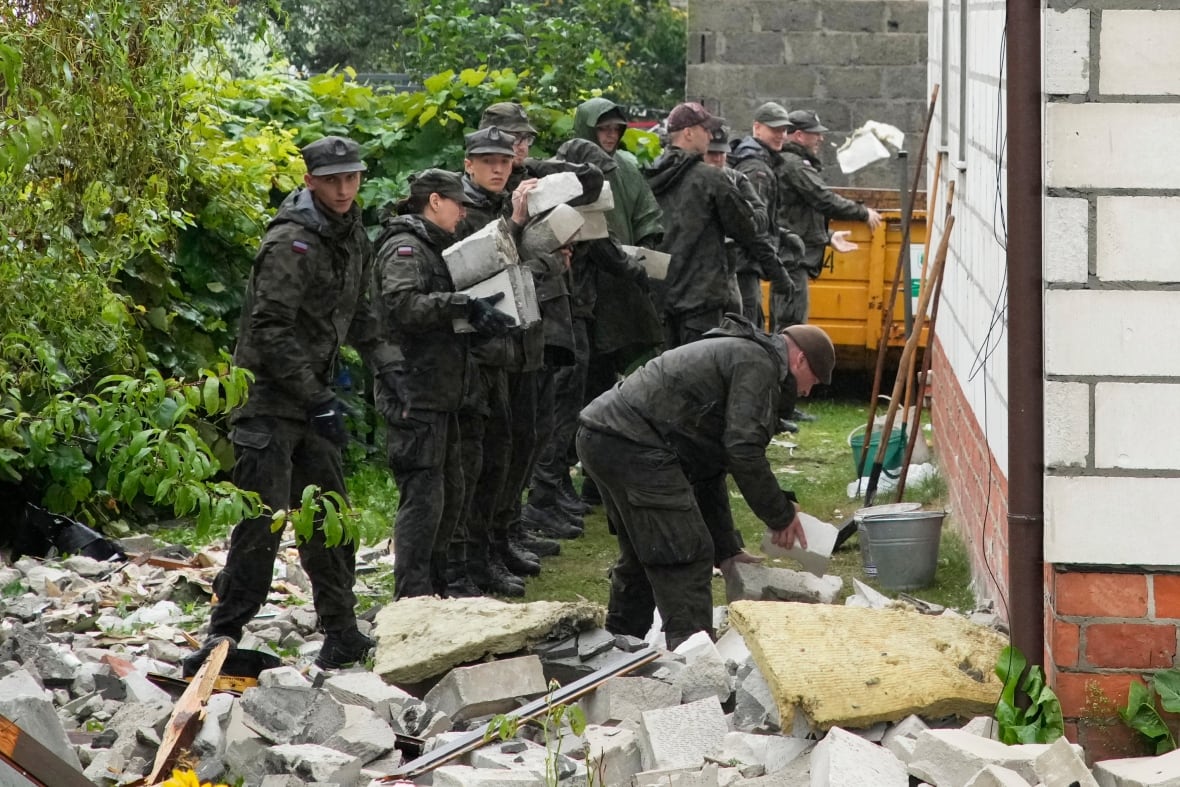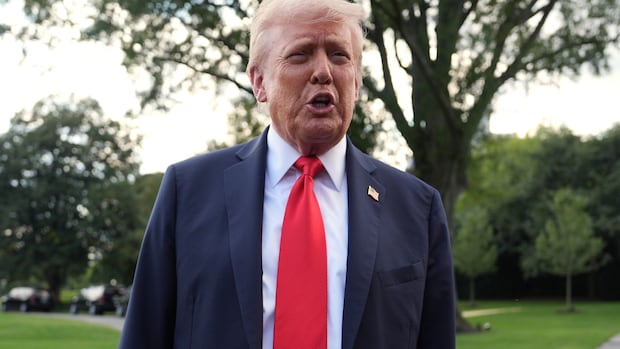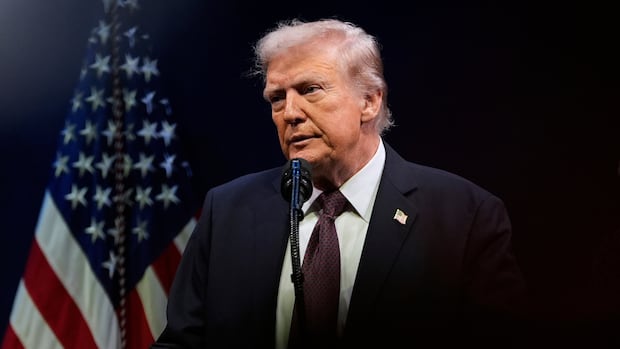U.S. President Donald Trump issued a letter to NATO countries on Saturday, urging them to stop buying Russian oil and impose major sanctions on Russia to end the war with Ukraine.
Trump posted on his social media site on Saturday that the North Atlantic Treaty Organization’s commitment “to WIN” the war “has been far less than 100%” and that the purchase of Russian oil by some members of the alliance is “shocking.”
“It greatly weakens your negotiating position, and bargaining power, over Russia,” he said, referring to NATO.
Trump said he believes the war — which began with Russia’s invasion of Ukraine on Feb. 24, 2022 — would end if all NATO countries stopped buying Russia’s oil and started placing 50 to 100 per cent tariffs on China for its purchases of Russian petroleum.
Within hours, Beijing responded to Trump’s call by saying China’s foreign affairs minister said the country doesn’t participate in wars or plot them.
War cannot solve problems, and sanctions only complicate them, Wang Yi told a joint news conference with his Slovenian counterpart in Slovenia’s capital, Ljubljana, according to a statement from China’s Foreign Affairs Ministry.
NATO member Turkey has been the third-largest buyer of Russian oil, after China and India, according to the Centre for Research on Energy and Clean Air. Other members of the 32-state alliance involved in purchasing Russian oil include Hungary and Slovakia.
Trump’s letter comes at a tense moment in the war after the recent flight of multiple Russian drones into Poland, an escalatory move by Russia as it was entering the airspace of the NATO ally.
Poland, with backing of military aircraft from NATO allies, shot down the drones. Trump played down the severity of the incursion and Russia’s motives by saying it “could have been a mistake.”
Trump has promised to end the war quickly but at times has been seen as reluctant to confront Russian President Vladimir Putin. Congress is currently trying to get the U.S. president to back a bill toughening sanctions, after Trump last month hosted Putin in Alaska for talks that failed to deliver on progress toward peace.
Britain’s taken action on Russian oil trading
The U.S. and its allies are seeking to show a firmer degree of resolve against Russia. At an emergency United Nations Security Council meeting on Friday, the acting U.S. ambassador, Dorothy Shea, said the United States “will defend every inch of NATO territory” and that the drones entering Poland “intentionally or otherwise show immense disrespect for good-faith U.S. efforts to bring an end to this conflict.”
Also on Friday, Britain took steps to penalize the trading of Russian oil, including a ban on 70 vessels allegedly used in its transportation. The United Kingdom also sanctioned 30 individuals and companies, included businesses based in China and Turkey, that have supplied Russia with electronics, chemicals, explosives and other weapons components.

Territorial defence officers clean up debris from the shattered roof of a house after multiple Russian drones struck in Wyryki near Lublin, Poland, on Thursday. (Czarek Sokolowski/The Associated Press)
In his Saturday post, Trump said a NATO ban on Russian oil plus tariffs on China would “also be of great help in ENDING this deadly, but RIDICULOUS, WAR.”
He said NATO members should put heavy tariffs on China and withdraw them if there’s an end to the war.
“China has a strong control, and even grip, over Russia,” Trump’s post says, and powerful tariffs “will break that grip.”
The U.S. president has already imposed a 25 per cent import tax on goods from India, specifically for its buying of Russian energy products. In total, he has placed a 50 per cent tariff on India, though Trump has indicated that negotiations with Indian Prime Minister Narendra Modi could help settle differences.
The prospect of further import tax hikes on China and its retaliation could carry collateral damage for the U.S. and European economies.
Earlier this year, Trump hit Chinese goods with new tariffs totalling 145 per cent, prompting China to respond with 125 per cent import taxes on American goods. Taxes at that level were essentially a blockade on commerce between the world’s two largest economies, causing worries about global growth that led to negotiations that ratcheted down the tariffs being levied by both nations.
So that trade talks could proceed, the U.S. lowered its tariffs against China to a still-high 30 per cent, while China took its rate to 10 per cent.
U.S. President Donald Trump is threatening tougher sanctions on Russia following the largest overnight air attack on Ukraine since the start of the war. The attack targeted a main Ukrainian government building in Kyiv.
In his post, the Republican president said responsibility for the war fell on his predecessor, Democrat Joe Biden, and Ukrainian President Volodymyr Zelenskyy. He did not include Putin in that list.
Trump’s post builds on a call Friday with finance ministers in the G7, a forum of industrialized democracies.
During the talk, U.S. Trade Representative Jamieson Greer and Treasury Secretary Scott Bessent called on their counterparts to have a “unified front” to cut off “the revenues funding Putin’s war machine,” according to Greer’s office.

